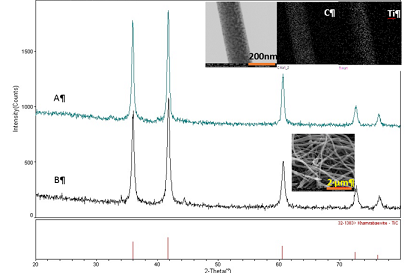
Kanchan Mondal
Southern Illinois University, USA
Title: Synthesis and characterization of titanium carbide nanofibers using a modified carbothermal reduction process
Biography
Biography: Kanchan Mondal
Abstract
Statement of the Problem: Single phase titanium nanofiber synthesis is a challenge. In this paper, the synthesis of titanium carbide nanofibers using a carbothermal process will be presented along with the thermal, mechanical and electrical properties.
Methodology & Theoretical Orientation: Titanium oxide nanofibers were fabricated by electrospinning method from a sol containing a mineral acid for peptizing, followed by calcination at temperatures ranging from 250-800ºC. Various carbothermal routes of production of these high L/D structures will be shown and the impact of processing routes on the morphology will be discussed. One route involved the coating of carbon on the oxide nanofibers by cracking of propylene (C3H6). Carbon coated titania fibers were reacted at 1400ºC and 1500ºC for 1 or 2 hours under argon atmosphere to form titanium carbide nanofibers. The titanium carbide nanofibers were characterized using scanning electron microscope (SEM), transmission electron microscope (TEM and HRTEM), and X-ray diffraction (XRD).
Findings: The average diameter of the TiO2 fibers and TiC fibers averaged at 150 nm and 350 nm, respectively. Due to the high conductivity, chemically and electrochemical stability in strong acid and high potential environment, the synthesized TiC fibers show great potential for fuel cell applications such as support of bipolar plates and catalyst support. The data also show the potential EDLC applications of these fibers. The electrical, mechanical and thermal properties of the synthesized TiC will be reported and compared with the theoretical values.


